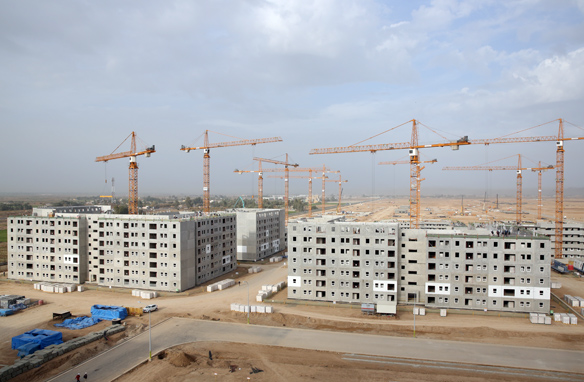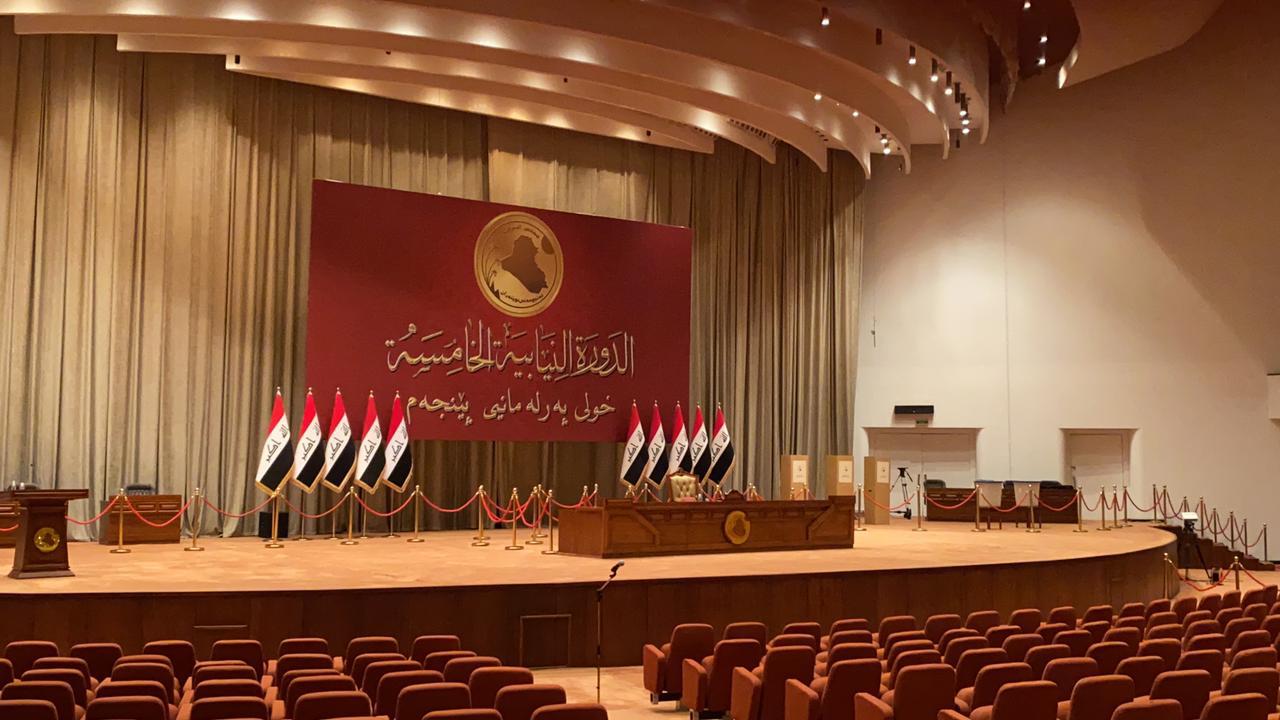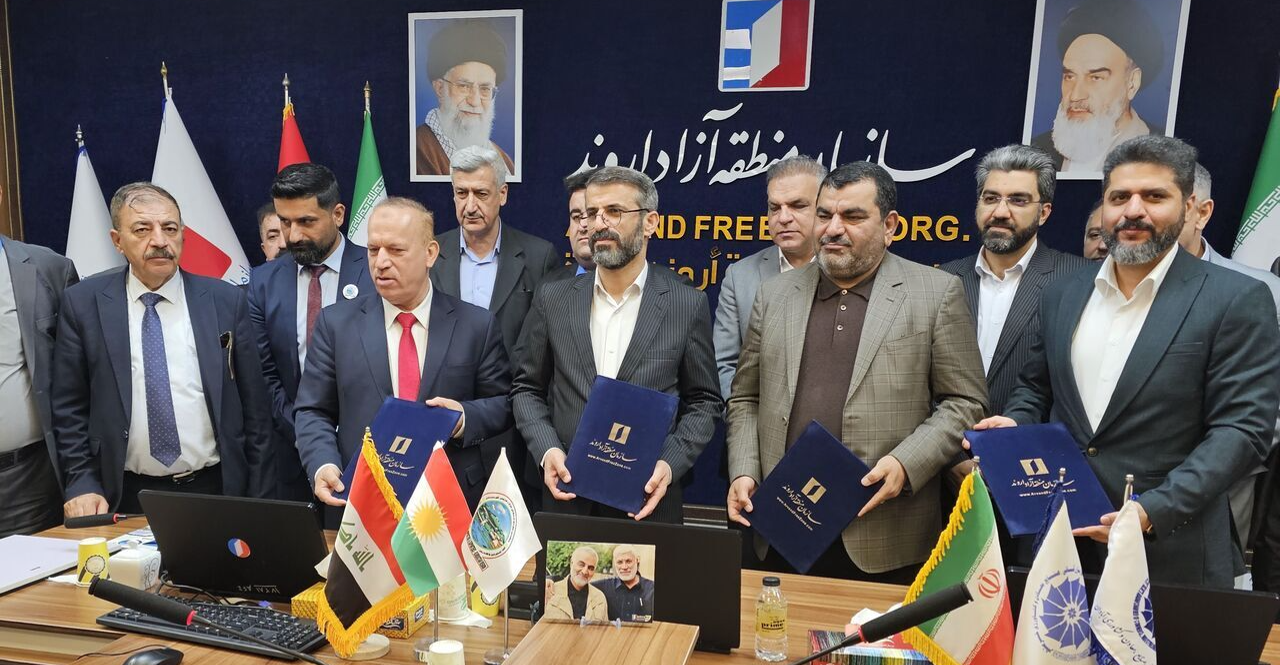Falling real estate prices in Iraq: good news for low-income families

Shafaq News / Iraq faces a severe housing shortage, with estimates suggesting a gap of over 2.5 million units. This deficit is driven by a growing population exceeding one million annually and a stagnant housing market.
"Baghdad has the greatest need compared to other governorates because it has the largest population, estimated at over 9 million people, roughly a quarter of Iraq's population. This makes the need in Baghdad more pressing than elsewhere. While all governorates require housing units, the demand varies according to their population sizes," according to Abdul Zahra al-Hindawi, spokesperson for the Ministry of Planning.
"Therefore, the current trend is towards building new residential cities that meet the need for housing units, which will positively affect the housing sector by providing more housing units in the real estate market and thus meet the existing need and demand," he explained to Shafaq News Agency.
Strategic Solutions
The Iraqi Ministry of Construction and Housing estimates that Iraq needs about 3 million housing to alleviate the severe housing crisis, "and this adds a challenge to the government, but the ministry is working diligently to find effective strategic solutions on the ground through various axis," said Istabraq Sabah, spokesman for the Ministry of Construction and Housing.
"The first axis is providing a large number of housing loans for the construction of housing units through the Iraqi Housing Fund, a division of the Ministry of Construction. Housing Fund will grant soft loans of 60 million dinars (1 USD = 1310 IQD) for the purpose of building housing units," Sabah told Shafaq News.
"The Housing Department at the Ministry of Construction, responsible for implementing housing complexes in Iraq, has 16 projects underway; a number of these projects will be opened in the coming period. The completed projects include low-cost housing units, which are distributed according to categories defined by the National Housing Council."
As for the most important axis to address the housing crisis, "the government is working through the Ministry of Construction and Housing on the project of new residential cities, and there are two generations of new residential cities, the first generation includes five cities (Al-Jawahiri, Ali al-Wardi, Al-Ghazlani, Karbala Banks, and Jana'an) and these cities will support the housing sector with more than 225,000 housing units," according to Sabah.
"At the same time, the ministry is also working on the second group of six new residential cities (Al-Majar Al-Kabir in Maysan, Al-Warka in Muthanna, Al-Balad in Saladin, Ur in Dhi Qar, Al-Salam in Najaf, and Al-Mutanabbi in Wasit)."
Sabah emphasized the creation of new cities with sustainable housing. These cities will integrate various land uses with a strong economic foundation. By attracting residents away from crowded city centers, these developments aim to stabilize housing prices, particularly in investment complexes notorious for their excessive costs.
"The housing market will witness a drop in prices once the work begins and the housing units are distributed through these new residential cities," Sabah said.
Amending the Housing Fund Law
Regarding the amendment of the Cooperative Housing Fund Law in Iraq, Mahdia al-Lami, a member of the parliamentary Services and Construction Committee, explained that the housing crisis is a long-term issue that requires time and interventions from the legislative and executive authorities. To address this problem, the New Cities Authority was established within the Ministry of Construction and Housing. This authority has conducted studies and proposed the development of new cities outside the boundaries of Baghdad Municipality and in other governorates.
Regarding the prices of residential cities, al-Lami noted that Ali al-Wardi City in Nahrawan and New Sadr City are suitable for low and middle-income earners. Banks also provide interest-free mortgage loans (excluding administrative expenses) for those wishing to buy real estate, as well as loans for land construction, provided the land area is at least 100 square meters.
The proposed amendments to the Cooperative Housing Fund Law include eliminating the requirement that applicants must be 18 years old and reducing the required area to qualify for the loan to 72 square meters instead of 100 square meters. Additionally, obtaining loans will be facilitated for those with fixed salaries without the need for a guarantor, with government funds secured through the Ministry of Finance.
The housing crisis is "manufactured."
Economic expert Abdul Salam Hassan Hussein, on the other hand, believed that "the housing crisis is manufactured to connect various departments, such as the Ministry of Justice, which is supposed to focus solely on property issues, but is involved in prisons, courts, and other matters. Therefore, this department should be separated to function independently. Property is also linked to the Ministry of Finance through taxes, as well as the Baghdad Municipality and the municipal departments. Even citizens' rights in this area are tied to 5 to 6 ministries, each taking a share of the profits."
Hussein proposed, in his conversation with Shafaq News Agency, resolving the housing crisis by "separating these departments into a single entity that manages fees based on regulations and a government disclosure that determines property prices. Investment, however, is an illness that has no cure due to the exploitation by investors who control the fate of the property. The state may intentionally manufacture this crisis to protect corrupt self-financed investments."






